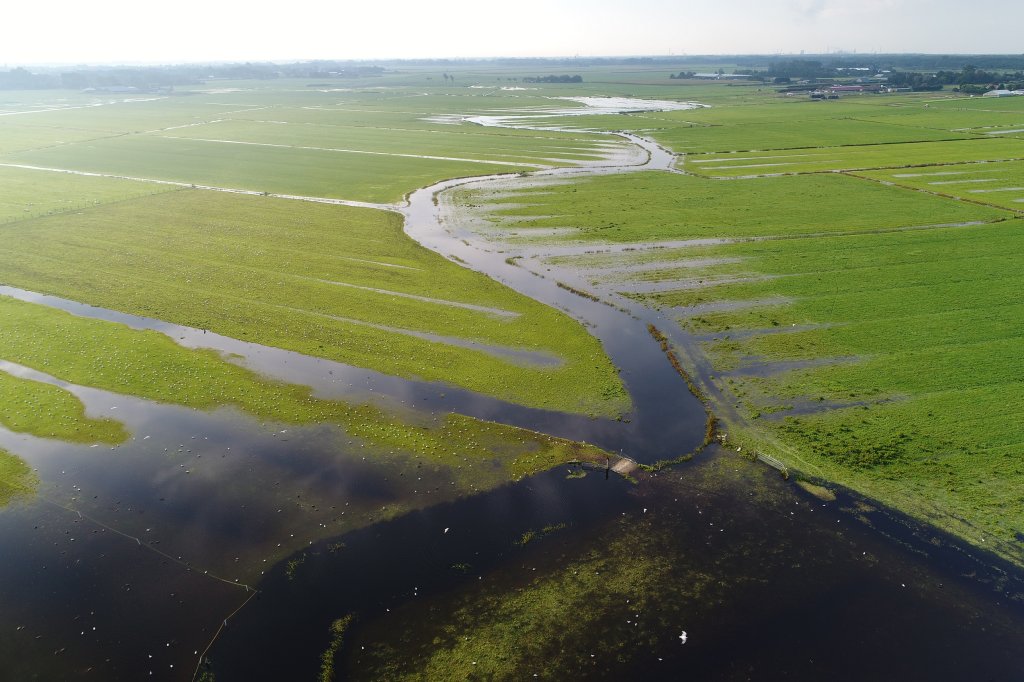When to compensate when raised?
Last year, the Water Board proposed a permit requirement in Water Board Ordinance 2025 to establish a compensation requirement for the loss of water storage capacity when raising the 5-10% of low-lying plots in polders. If such sites disappear due to elevation, then the water flood risk shifts within a polder. Risks are thus transferred to other parcels of land, the predictability of risks disappears and risks may even increase. This is something we want to prevent.
The 2024 proposal generated over 300 views, after which the Executive Board decided to withdraw the measure from the ordinance for 2025. We are using 2025 to engage in discussions with the various stakeholders on how to implement the measure. However, the usefulness and necessity of the measure remain unchanged. Extreme rain showers are becoming more frequent, resulting in rainwater temporarily remaining on, usually low-lying, plots of land. Land in our area is being raised because of energy transition and for housing construction, among other things. This shifts the water overflow risk to adjacent parcels of land, which is undesirable. We want to ensure that a polder retains sufficient water storage capacity. That is why it is necessary to set Requirements the elevation of plots.
Scenarios
We have developed several scenarios to flesh out the measure "Raise = Compensate. These scenarios provide direction and are not fixed facts. We are organizing talks with municipalities and umbrella organizations from various sectors to identify the pros and cons of each scenario and to test them for effectiveness, explainability, feasibility and support. For other stakeholders we will organize a number of meetings. You can register for these using the form on the right.
At the end of 2025, based on the responses collected, the decision on the preferred scenario will take place. This will then be fed into the public participation process for the 2027 amendment to Water Board Ordinance.
